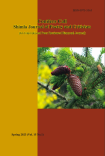Interrogating the Meta-narrative of Religion: The FictionalOeuvre of Ngugi wa Thiong’o
This Paper attempts a critical reading of Christianity in colonial times as captured in the early novels from Kenya. We specifically refer to Ngugi’s Weep Not, Child (1964), The River Between (1965), and A Grain of Wheat (1967) to show the author’s disquiet with Christianity as a cog in the wheel of colonialism. We focus on Ngugi for various reasons: first that he is arguably the most celebrated Kenyan creative writer who has also widely philosophized his ideas by way of critical essays; and, secondly, that a closer reading of his texts reveals an uneasy relationship between, on the one hand, his religious and spiritual disposition and his socio-cultural and political views on the other. In a way, we chose Ngugi because he epitomizes to a remarkable degree the position of the writer both as a creative but also as a spiritual being.
I am a writer. Some have even called me a religious writer. I write about people: I am interested in their hidden lives; their fears and hopes, their loves and hates, and how the very tension in their hearts affects their daily contact with other men: how, in other words, the emotional stream of the man interacts with the social reality. (Ngugi1972: 31)
Rohit Phutela

